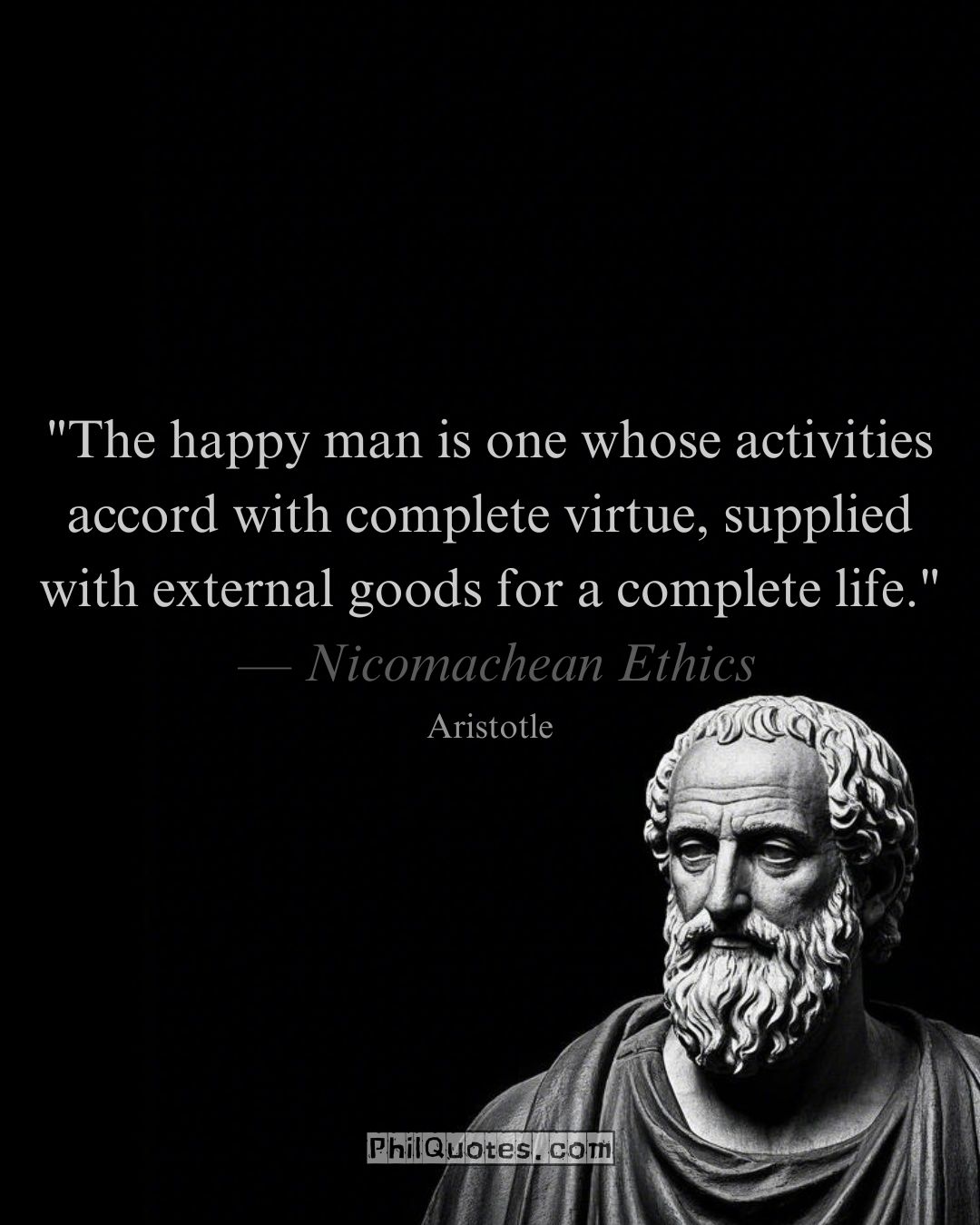
“The happy man is one whose activities accord with complete virtue, supplied with external goods for a complete life.”
— Aristotle, Nicomachean Ethics, Book I, Chapter 10
Explanation:
Aristotle’s formula for happiness (eudaimonia) unites two dimensions:
- Complete Virtue — A symphony of moral excellence (courage + justice + wisdom) harmonizing daily actions.
- External Goods — Resources (health, wealth, friends) sustaining this symphony across a lifespan.
Like a sequoia tree needing both deep roots (virtue) and sunlight (resources), happiness flourishes when inner greatness meets outer nourishment.
Real-World Connection:
① Teacher’s Legacy →
You mentor underprivileged students (virtuous action) → secure grants for scholarships (external support) → witness graduates lead social reforms 20 years later (complete life impact).
② Athlete’s Triumph →
A runner trains ethically (no doping) → uses prize money to build rehab clinics (virtue-resource loop) → retires coaching Paralympians (lifespan fulfillment).
③ The Golden Equation →
- Virtue Alone = Unread masterpiece (Beethoven composing deaf but starving).
- Resources Alone = Empty palace (Billionaire hoarding art never displayed).
- Synthesis = Van Gogh’s sunflowers (Struggle + Patron support = Eternal beauty).